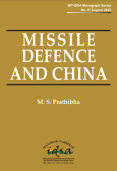The Korean Imbroglio
North Korea’s uranium enrichment programme has made the US jittery and is not totally confident of reopening the six-party talks. Washington needs assurances regarding North Korea’s future nuclear programmes and the key to finding a solution to the present stalemate lies with Beijing.
- R. S. Kalha
- April 25, 2013











